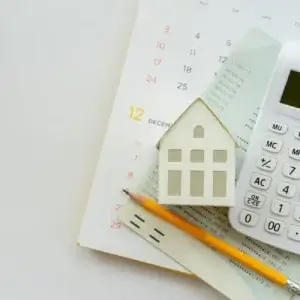Home / Home Loans / What are the ongoing cos…




Key takeaways
- Buying a home is an expensive endeavour, but you’ll also need to be aware of your ongoing costs as a homeowner.
- You’ll have to deal with both regular ongoing costs and a range of irregular costs as part of owning a home.
- The good news is that you can manage and prepare for these ongoing costs through budgeting and saving.
Expert tips for managing the ongoing costs of home ownership
As General Manager of Money at Compare the Market, Stephen Zeller wants to help both seasoned borrowers and first home buyers get a better understanding of their regular expenses, and budget for them better as a result. With that in mind, he has these tips.

Add up your known costs
Tally up and budget for your regular ongoing costs like council rates, home insurance and your home loan repayments – you can’t get caught out by your expenses if you’ve accounted for them and know they’re coming! When both known and unknown costs are on the table, it’s smart to make sure the known costs are taken care of.
Keep a buffer on hand
Unexpected additional costs can blow a hole in your budget if you’re not financially prepared for them, so you may find it beneficial to keep a reserve fund of savings specifically for those irregular and hidden costs. You could potentially utilise an offset account to hold these funds, and that way you’ll be saving on home loan interest to boot!
Be prudent when renovating
Renovations are exciting, but that excitement can potentially lead to a cost blowout if you’re not careful. Whether it’s your first time renovating or you’re a seasoned redecorator, be sure to thoroughly account for the costs of any planned renovations and do your best to stay mindful of your budget throughout the renovation process.
What are the regular costs of owning a home?
Mortgage repayments

Assuming you took out a home loan to buy your home, your home loan repayments will generally be one of the chunkier regular costs you’ll incur once your upfront home-buying costs have been dealt with.
Depending on the type of home loan and interest rate you have, your mortgage payments will either be constant (if you have a fixed rate home loan) or could potentially vary (if you have a variable rate home loan).
Additionally, a lender will typically offer you different repayment frequency options, meaning you could potentially choose to make either weekly, fortnightly or monthly repayments in order to influence the size of your regular mortgage repayments. This means you’ll generally be able to pick a repayment frequency that suits your budget and financial situation, regardless of your loan amount.
Ongoing home loan fees
Most home loans typically come with account-keeping or package fees, which can come in the form of smaller monthly costs or larger annual charges. These package fees could be higher if you have other features such as an offset account as part of your home loan package.
While these fees will likely be a drop in the bucket compared against your home loan repayments, they can still add up. With this in mind, you may want to shop around for a home loan with competitive fees.
Council rates
All homeowners are required to pay council rates, which go towards civic services and infrastructure such as footpaths and public parks.
Houses and similar large properties will typically attract higher council rates than units, as councils tend to use the value of the property and land as the basis for their rates calculations. Check with the vendor, a buyer’s agent or your local council to get an idea of what council rates and other relevant government fees might look like in the area you want to buy in.
Body corporate fees
If you buy a unit, apartment or townhouse in a building or complex, you may have to pay body corporate/strata fees as a result.
Body corporate fees are charged to residents of a building or complex by the body corporate itself, which is a legal entity comprised of the owners involved in a community title scheme (e.g. the body corporate for an apartment building would be made up of those who own the individual apartments).
Body corporate fees go towards the upkeep of common areas, provision of utilities and any necessary structural repairs to the property.
However, buying an apartment or unit doesn’t guarantee you’ll have to pay body corporate fees, as the building’s various properties may be individually metred for utilities. Check with your buyers’ agent, the seller or their real estate agent for a better understanding of any applicable body corporate fees you may have to pay.
Home and contents insurance
Depending on the type of property you buy, you’ll want to have home and contents insurance in place prior to final settlement. Lenders typically won’t agree to finance your property purchase until you can show evidence that you’ve insured the property against damage. In this sense, your home insurance premiums will be an upfront cost as well as an ongoing one.
If you’ve bought a unit or apartment, you may not be required to take out building or home insurance as it may be the responsibility of the building’s owner. However, you should still consider contents insurance to protect your belongings inside your home.
Utilities
As a renter, you may not have paid for your water or gas usage, as landlords will sometimes cover these costs. However, as an owner-occupier, you’ll be responsible for the cost of every utility connected to your home.
With this in mind, you may want to make sure you’ve got your providers and connections sorted ahead of time, and get an idea of what you might pay for water, electricity and gas in your new home.
Keep in mind that these expenses will ultimately depend on your household usage, so while they’re a regular cost, they’ll likely be a fluctuating one.
What are the irregular costs of owning a home?
General maintenance and wear and tear

Maintenance costs are just about a given as a homeowner – the tricky bit is that they don’t operate on a timetable, so you could have to fork out for maintenance work at any time.
The good news is that a lot of general maintenance tasks can typically be completed yourself, like cleaning out gutters, keeping air conditioner filters clean and so on.
However, for larger-scale maintenance work or eradicating pests such as ants or termites, you may have to enlist the services of a tradesperson, which generally won’t be cheap. This is why building inspections and pest inspections are often a crucial part of the initial home-buying process.
Breakages and repairs
However much you tinker, clean and tighten, breakages happen and repairs are subsequently required. If you fancy yourself as a bit handy, you could attempt to handle many of these repairs yourself, but some of them may be beyond your ability.
Qualified professionals generally don’t come cheap. However, you may be able to reduce the frequency of breakages occurring around your home by staying diligent and up to date on your maintenance works. This in turn can see you spending less on repairs!
Renovations
Whether you’ve lived in your home for 2 years or 20, you might decide that it’s time to give it a bit of a facelift with some renovations.
This could be anything from installing a new kitchen to re-doing your bathroom, or completely transforming the look and feel of your entire home.
However, unlike most of the costs that fall into the ‘irregular’ category and are usually paid for upfront, renovations should ideally be thought through and planned well in advance.
You may even decide to refinance your home loan or take out a renovation loan in order to borrow additional funds for the renovations, rather than paying for them out of pocket. If so, be sure to compare home loans to find one that suits your current financial needs and wants – including the renovations!
Remodelling
Whereas renovations change the feel of a space or home, remodelling changes the purpose or structure of a space, and can be a much more labour-intensive process.
Remodelling will often involve removing and rebuilding walls and reconfiguring large parts of your home, if not the whole property. This means it’ll generally be significantly more expensive than a simple renovation and will subsequently need to be planned and budgeted for thoroughly. As with renovations, however, you may decide to pay for them by refinancing your home loan.
Some remodelling may also require you to obtain a development approval or even a building approval from your local council before you start work – it’s worth checking in with your local authority before you pick up the tools.
Meet our home loans expert, Stephen Zeller
Stephen has more than 30 years of experience in the financial services industry and holds a Certificate IV in Finance and Mortgage Broking. He’s also a member of both the Australian and New Zealand Institute of Insurance and Finance (ANZIIF) and the Mortgage and Finance Association of Australia (MFAA).
Stephen leads our team of Mortgage Brokers, and reviews and contributes to Compare the Market’s banking-related content to ensure it’s as helpful and empowering as possible for our readers.

